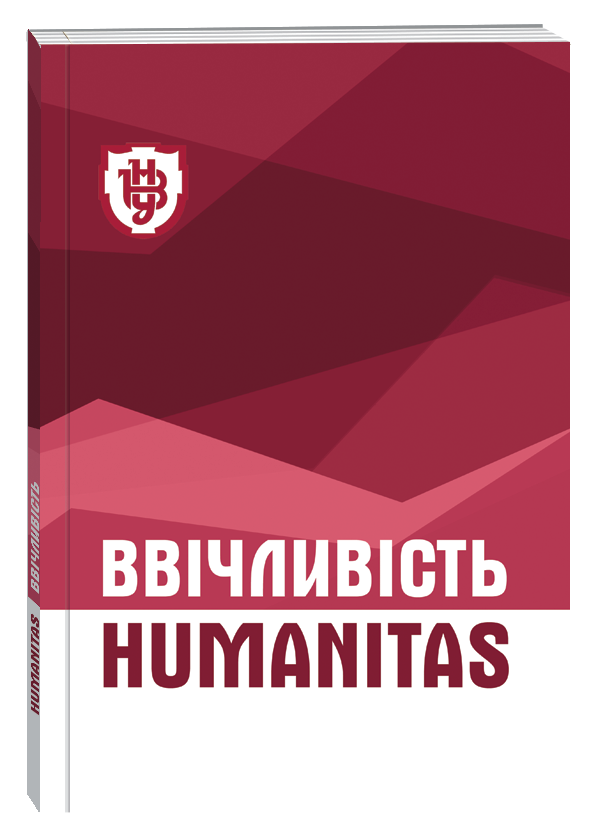EUROPEAN PRACTICE OF THE COMPETENCE-BASED MODEL IN EDUCATION
DOI:
https://doi.org/10.32782/humanitas/2024.4.16Keywords:
competence, competence-based model, key competences, subject competences, generic competence, competence-based education, social environmentAbstract
Present challenges define a new paradigm for the development of education and encourage considerable effort. Globalisation and digital technologies intensify competition for the quality of work in the job market accelerating intercultural communication. In such conditions, having a fixed set of knowledge and skills is no longer acceptable. There is an urgent need to continuously replenish professional and personal resources to be able to respond effectively to current demands. It makes the competence-based model a priority in education to provide the society with a solid foundation for life and work in the social environment. There is no doubt that the competence-based model in the development of educational content has become the focus of the world concern. In Ukraine, scientific research into the model is being carried out, too, to meet the national needs and be competence-oriented. This underscores the achievements of other countries where theory and practice in terms of competence-based education is being utilised. The article highlights the essencials of the competence-based model and the role of key competences framework in the European education. Ukrainian and foreign scholars put forward various theories and practices to solve this issue. Due to lengthy discussions, it has been accepted to think that the concept of the competence-based approach in education is associated with the fostering of the person’s ability to realise their life goals and a certain set of actions. Hence, it requires shifting the emphasis from the educational process itself to its outcomes, as well as transforming it from being common for “all” into the “individual-oriented”. It is crucial to pinpoint those spheres of activity where a person can achieve the highest competence as early as possible. The concept of education quality based on the framework of key competences is being actively practised in the EU. Therefore, it is vitally important to analyse the European practice to apply the most appropriate competence-based model in Ukrainian education.
References
Клепко С. Ф. Філософія освіти в європейському контексті. Полтава : ПОІППО, 2006. 326 с.
Компетентнісний підхід у сучасній освіті: світовий досвід та українські перспективи: б-ка з освітньої політики / за ред. О. В. Овчарук. К. : «К.І.С.», 2004. 112 с.
Компетентнісний підхід в освіті: теоретичні засади і практика реалізації : матеріали методол. семінару 3 квіт. 2014 р., м. Київ : [у 2 ч.]. Ч. 1. К. : Ін-т обдарованої дитини НАПН України, 2014. 370 с.
Лавриченко Н. М. Педагогічні соціалізації: європейські обриси. К. : ВІРА ІНСАЙТ, 2000. 444 с.
Локшина О. І. Зміст шкільної освіти в країнах Європейського Союзу: теорія і практика (друга половина ХХ – початок ХХІ ст.) : монографія. К. : Богданова А. М., 2009. 404 с.
Луговий В. І. Європейська концепція компетентнісного підходу у вищій школі та проблеми її реалізації в Україні. Педагогіка і психологія. 2010. № 2. С. 13–25.
Пометун О. І. Теорія та практика послідовної реалізації компетентнісного підходу в досвіді зарубіжних країн. Компетентнісний підхід у сучасній освіті: світовий досвід та українські перспективи: б-ка з освітньої політики / за ред. О. В. Овчарук. К. : «К.І.С.», 2004. С. 16–25.
Родигіна І. В. Інноваційний потенціал компетентнісного підходу в освіті. Молодий вчений. 2017. № 5. С. 423–426. URL: http://nbuv.gov.ua/UJRN/molv_2017_5_98
Хом’як А., Галацин К. Комунікативна культура майбутнього фахівця : монографія. Луцьк : Вежа-Друк, 2019. 132 с.
European Union. Schools for the 21st Century. Commission Staff Working Paper (CSWP). 11.07.01. SEC (2007) 1009. Brussels : Commission of the European Communities, 2007. 12 p.
Hager P. Is there a cogent philosophical argument against competency standards? Philosophy of Education: Major Themes in the Analytic Tradition. Volume 4. Ed. by Paul H. Hirst and Patricia White. Florence, KY, USA : Routledge, 1998. P. 399–415.
Key Competencies. A Developing Сoncept in General Compulsory Education. Eurydice. The Information Network on Education in Europe. Survey 5. 2002. 183 p.
Organisation for Еconomic Co-operation and Development (OECD). Definition and selection of competences (DESECO): theoretical and conceptual foundations. Strategy Paper. 2002. 27 p.
Sanches, Aurelio V., Ruiz, Manuel P. (Eds.) Competence-Based Learning. University of Duesto. 2008. 335 p.
Spector J. Michael-de la Teja, Ileana. Competence, Competencies and Certification. Competencies for Online Teaching. ERIC Digest. ERIC Clearinghouse on Information & Technology, Syracuse University. 2001. P. 1–3.
Ruchen, Dominique S. Key Competencies for a Successful Life and a Well- Functioning Society. Hogrefe & Huber Publishers, Germany. 2003. 206 p.
Vitello S., Greatorex J., Shaw S. What is competence? A shared interpretation of competence to support teaching, learning and assessment. Cambridge University Press & Assessment. 2021. 22 p.







